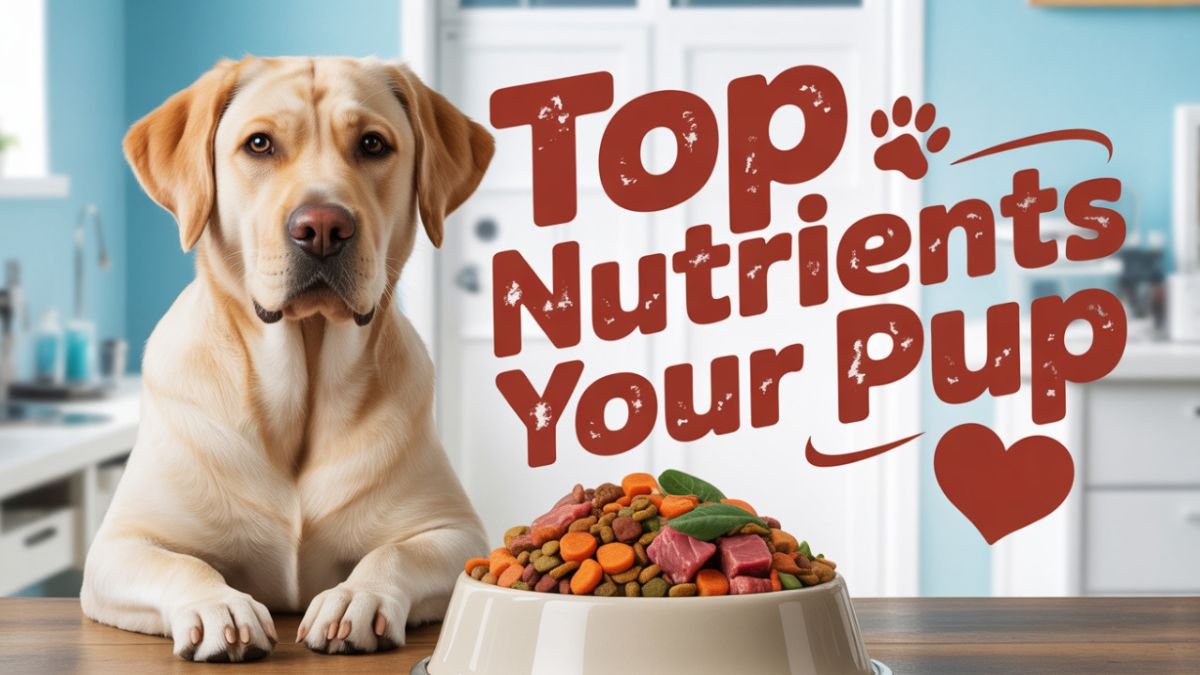An appropriate diet is paramount in nurturing a happy, healthy, and energetic canine companion in the house. Different people choose dog food different because of the trend or taste. But very much make sure to study the different things that are so important for your dog’s life throughout his life.
What should dog food contain?
AAFCO (American Feed Control Officials) specifies six classes of nutrients that are considered necessary to support a normal dog:
- Protein: Building blocks for muscles, bones, gums, skin, and hair.
- Fats: For energy, to keep the coat healthy and shiny.
- Carbohydrates: For energy and fiber.
- Vitamins: For smooth functioning of all the small and big processes happening in the body.
- Minerals: For bones, strong immunity, blood, and metabolism.
- Water: To keep the body clean, cool, and nourish the cells.
If protein is important, why?
- Well, protein ensures the health of your dog’s muscles, skin, and even nails.
- He cannot produce ten essential amino acids, which must therefore be provided via the diet.
- Meat, fish, and eggs are usually all great protein sources.
- Puppies need much more; adult dogs, a minimum of 18% protein.
And fat-next?
- Fats give shine to the skin; it gives energy;
- Essential omega-3 and omega-6 fatty acids are crucial for the heart, skin, and brain.
- Puppies/pregnant females sometimes need a little more fat.
- When selecting a suitable dog food, the fat content must be checked.
Carbohydrates-Useful for energy and digestion
- Carbohydrates from dry cereals, potatoes, brown rice, and oats provide your dog with energy.
- Carbohydrates also deliver fiber to keep their stomach clean.
- Their quantity should be determined with respect to age and activity in a balanced diet.
Vitamins and minerals: small yet very important.
- They keep thousands of bodily processes going seamlessly, like bone formation, wound healing, and jointStrength.
- Dog foods contain them precariously; it all comes down to giving them either internally as a supplement or not (unless prescribed by a veterinarian).
- Calcium, phosphorus, zinc, iron, and selenium are especially important.
Dry clean water: The great super food
- Fresh water must always be available.
- From hydration to disposal of waste, temperature regulation-Nothing can be done without water.
- A portion of wet food may reduce water requirements, but still drinking will be needed.
How will you know which foods are complete or not?
- The food label should say “Complete and Balanced”.
- With scrutiny over the guaranteed analysis, ingredientlist, and intended age.
- Having a mention of AAFCO (or PFI) on the dog food guidelines is a good sign.
Take care to consider age and needs
- Puppies: Require an increased amount of protein, fat, and calcium.
- Senior dogs: A lower level of calories, fibers, and ingredients supporting joints.
- Breeds with high-energy classes: Need a bit more energy and fat.
- Consideration of special medical conditions: Consult a veterinary nutritionist.
Can I feed homemade food to my dog?
- Only a special recipe, prepared under the advice of a veterinary dietitian, will be in perfect balance.
- Internet recipes can be often quite deficient, so it’s better to discuss any sort of diet with the veterinary.
- Do keep in mind to talk with an expert before giving any form of supplements or extra vitamins.
Quick Suggestions: Dog Happiness Mantras
- Water must always be fresh and readily available.
- Don’t choose food based just on taste or brand-consider the package nutrition list.
- Check the “Complete and Balanced” announcement label and dosing instructions.
- A switch in food should be done gradually to avoid digestive upset.
- If your dog develops sudden lethargy, hair loss, or loss of weight, he should be taken to a vet immediately.
A dog’s health, energy, and longevity password is a balanced and diverse diet. With the best nutrition, a dog can live life in strength and beauty- puppy-more than just wide-eyed, old friend-happy, or the most active breed. Your darling dog’s happiness literally rests in whatever he eats and drinks!
Conclusion
Secret to a dog’s health is on plate, a well-balanced diet prepared with protein, fat, carbohydrate, vitamin and minerals along with adequate water will keep your dog in perfect shape, happy and long lived. Every dog is different – so one should adapt to his age, size, and activity level. Always look for the “Complete and Balanced” label as well as recommendations made by AAFCO while selecting food.
In case of any confusion regarding your dog’s diet, you should necessarily consult a veterinary nutritionist and your doctor. Remember, nutrition is the key to true happiness and power!
